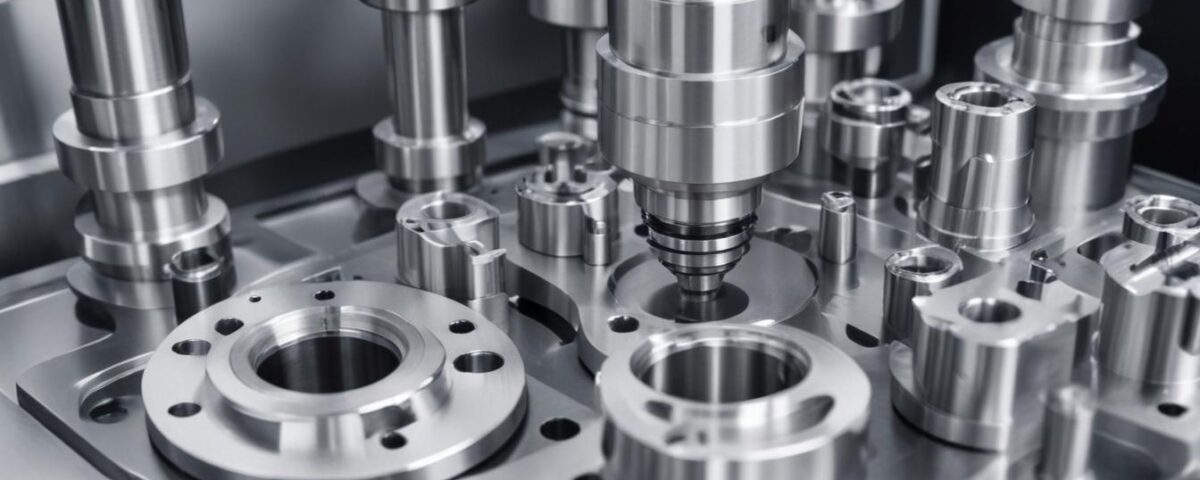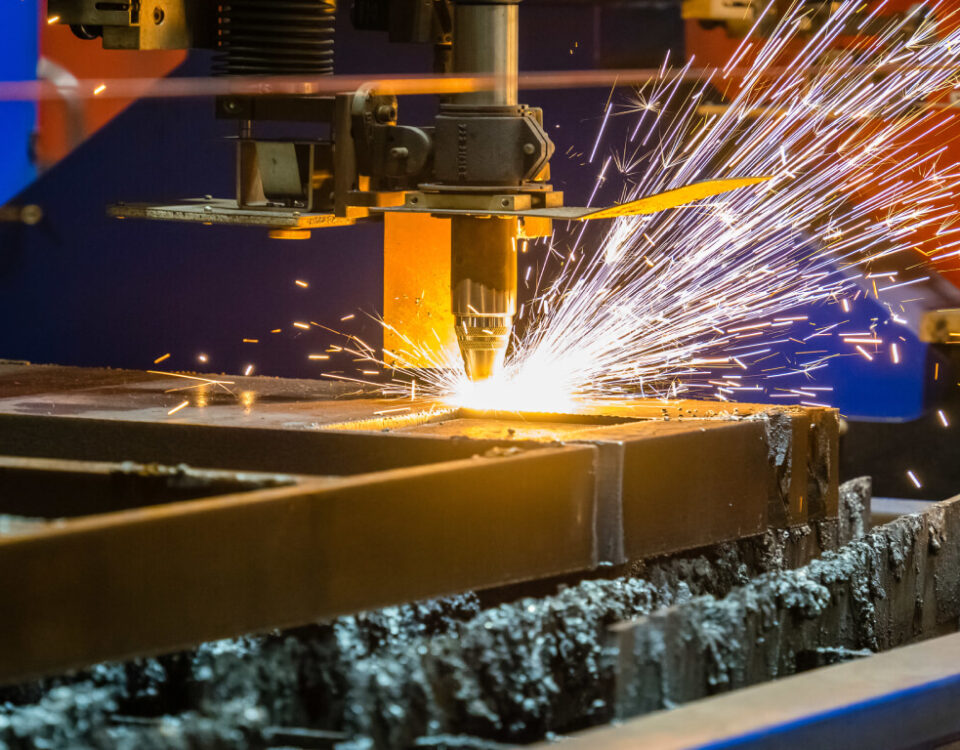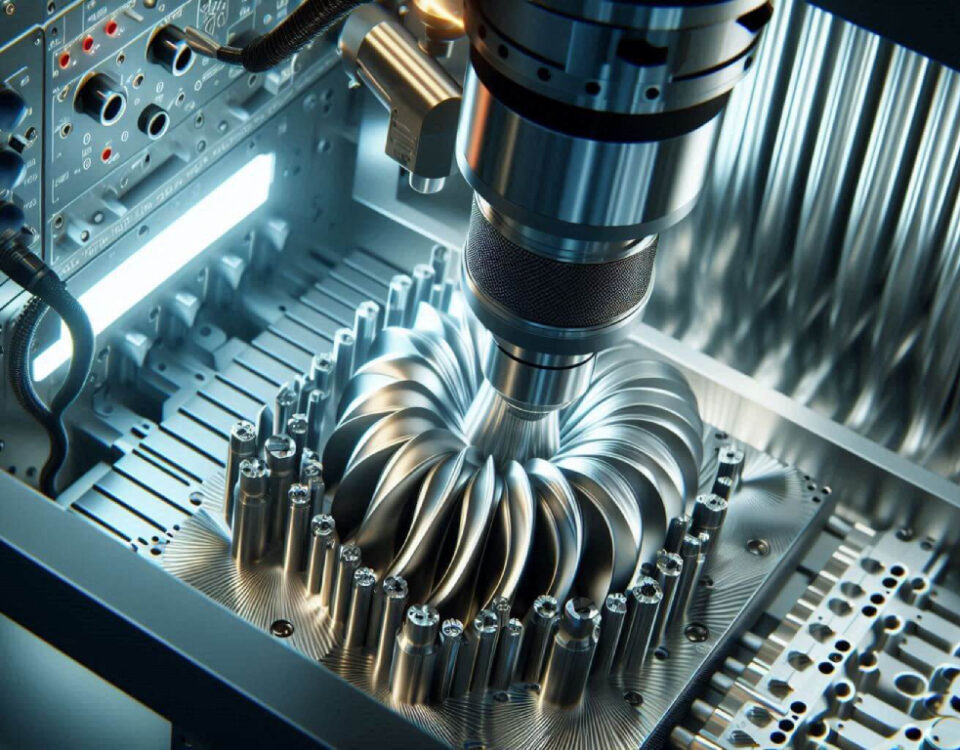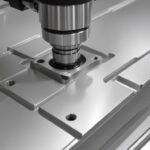
Why Polyester Coating for Metal is Essential in CNC Machining Processes
25 October 2024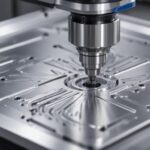
Metal CNC Prototyping: Delivering High-Quality Parts with Precision
30 October 2024CNC (Computer Numerical Control) machining has revolutionized the manufacturing landscape by automating complex machining processes with precision and efficiency. This technology utilizes computer software to control machine tools, allowing manufacturers to produce intricate parts and components with a high degree of accuracy. From aerospace and automotive to medical devices and consumer goods, CNC machining is essential for creating high-quality products that meet rigorous industry standards. As demand for customized and complex parts continues to rise, CNC machining remains at the forefront of modern manufacturing practices.
In today's competitive market, innovation in CNC machining is crucial for maintaining a competitive edge. As industries evolve and customer expectations grow, manufacturers must adopt advanced technologies to enhance productivity, reduce costs, and improve product quality. Innovations such as automation, artificial intelligence, and sustainable practices are reshaping the CNC machining sector, enabling businesses to respond more effectively to market changes and customer needs. Embracing these innovations not only enhances operational efficiency but also positions manufacturers for long-term success in a rapidly changing landscape.
1. The Current Landscape of CNC Machining
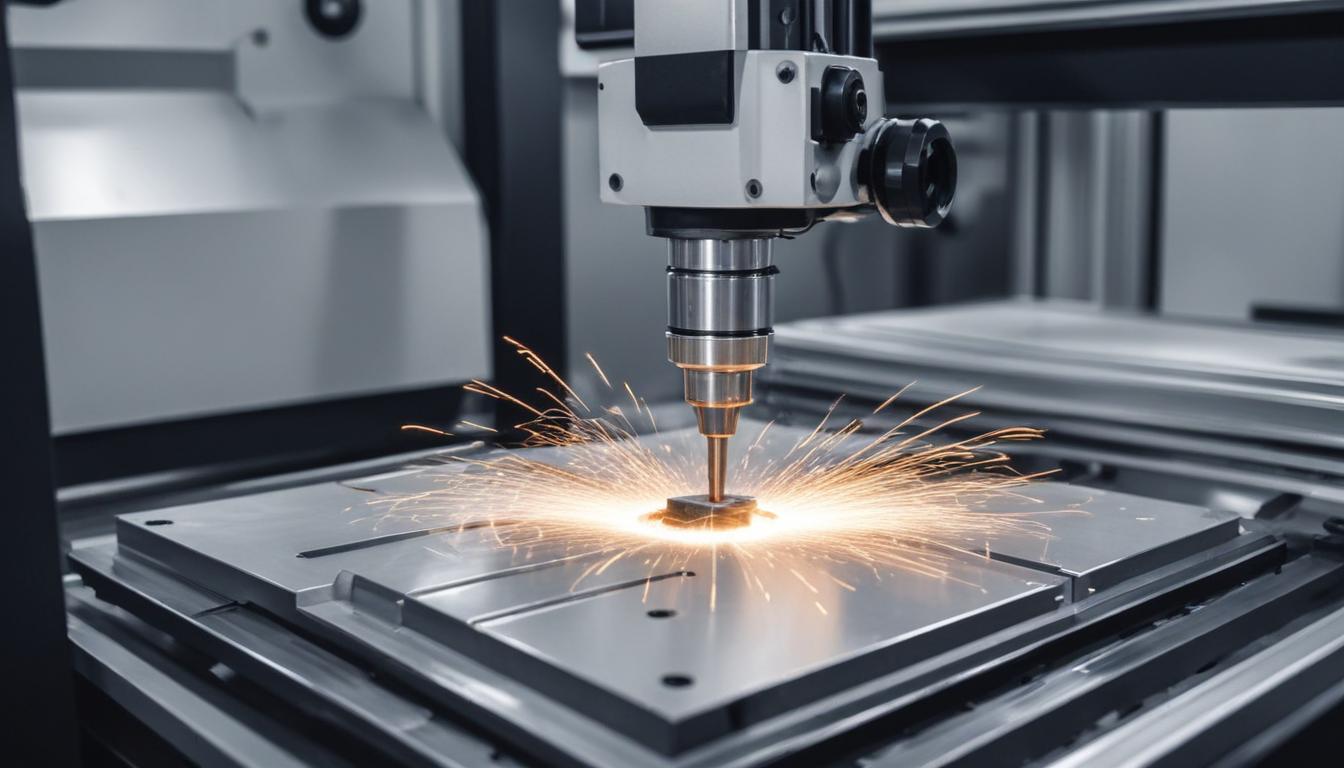
The CNC machining industry has experienced significant growth over the past decade, driven by the increasing demand for precision-engineered components across various sectors. The global market for CNC machining is projected to continue expanding as industries seek to optimize their production processes and meet the rising needs for customized and intricate parts. Factors such as the rapid advancement of technology, the push for automation, and the growth of industries like aerospace, automotive, and healthcare are fueling this demand. As businesses prioritize efficiency and accuracy, CNC machining has become a cornerstone of modern manufacturing, enabling faster turnaround times and reduced labor costs.
Several key industries rely heavily on CNC machining to produce critical components. The aerospace sector, for example, requires parts that meet stringent safety and performance standards, making CNC machining an ideal solution for manufacturing complex geometries with high precision. In the automotive industry, CNC machining plays a vital role in producing everything from engine components to intricate interior details, allowing for mass customization without sacrificing quality. The healthcare industry also benefits from CNC machining, particularly in the production of medical devices and implants, where precision and reliability are paramount. This widespread reliance on CNC technology underscores its importance in meeting the evolving demands of various markets.
As CNC machining continues to advance, several trends are emerging that are reshaping the industry. One prominent trend is the focus on production speed, with manufacturers seeking to reduce cycle times and enhance throughput through improved machining strategies and equipment. Precision remains a critical factor, with advancements in technology enabling tighter tolerances and better surface finishes. Additionally, the diversity of materials that can be machined is expanding, with new alloys and composites being developed to meet specific performance requirements. This increasing material diversity allows manufacturers to cater to a broader range of applications, further solidifying CNC machining’s role as a vital component of contemporary manufacturing practices.
2. Key Innovations Shaping the Future of CNC Machining
a. Advanced Automation and Robotics
One of the most transformative innovations in CNC machining is the integration of advanced automation and robotics. As manufacturers strive for increased efficiency and reduced operational costs, robotics play a crucial role in streamlining machining processes. Robotic arms can handle tasks such as loading and unloading parts, performing repetitive machining operations, and even executing complex assembly tasks. This automation not only speeds up production but also minimizes human error, ensuring a consistent quality of output.
Furthermore, the advent of autonomous and semi-autonomous CNC systems is revolutionizing the manufacturing landscape. These systems can operate independently, utilizing advanced algorithms and sensors to adapt to changing conditions on the shop floor. For example, they can make real-time adjustments based on feedback from the machining process, optimizing performance without human intervention. This level of automation enables manufacturers to achieve higher productivity rates and better resource allocation, ultimately leading to increased competitiveness in the market.
b. AI and Machine Learning Integration
Artificial intelligence (AI) and machine learning are increasingly being integrated into CNC machining to enhance operational efficiency and optimize processes. AI algorithms can analyze vast amounts of data generated during machining operations, identifying patterns and trends that human operators may overlook. By leveraging this data, manufacturers can fine-tune their machining strategies, improving both speed and accuracy. For instance, AI can help determine the optimal cutting parameters for specific materials, reducing waste and increasing tool life.
Predictive maintenance is another significant application of AI in CNC machining. By using machine learning algorithms to monitor machine performance, manufacturers can predict when a machine is likely to fail and schedule maintenance accordingly. This proactive approach minimizes downtime and extends the lifespan of equipment, leading to significant cost savings. Smart analytics can also provide insights into operational inefficiencies, enabling manufacturers to make data-driven decisions that enhance overall productivity.
c. Internet of Things (IoT) and Connected Machines
The Internet of Things (IoT) is transforming CNC machining by connecting machines and enabling real-time monitoring of their performance. IoT-enabled machines can communicate with each other and with centralized control systems, providing valuable data on operational parameters such as temperature, pressure, and vibration. This real-time data allows manufacturers to monitor performance continuously and make immediate adjustments to optimize processes.
Enhanced productivity and error reduction are direct benefits of implementing IoT in CNC machining. By analyzing data from connected machines, manufacturers can identify inefficiencies and implement corrective measures swiftly. For example, if a machine is consistently running outside of specified parameters, alerts can be generated to notify operators for immediate intervention. This level of oversight helps maintain quality standards and reduce scrap rates, ultimately contributing to a more efficient manufacturing process.
d. Additive Manufacturing and Hybrid Systems
The combination of CNC machining with additive manufacturing, commonly referred to as hybrid systems, represents a significant innovation in the industry. Hybrid systems can perform both subtractive and additive processes, allowing manufacturers to create complex geometries that were previously impossible with traditional machining alone. This capability is particularly advantageous in prototyping and small-batch production, where rapid iteration and customization are often required.
The advantages of hybrid manufacturing are numerous. For instance, it enables the efficient production of lightweight structures by allowing the addition of material only where needed, thus optimizing material usage. Additionally, hybrid systems facilitate the production of intricate designs that incorporate features such as internal cooling channels, which can significantly enhance the performance of components. As manufacturers continue to explore the potential of hybrid systems, the boundaries of what is achievable through CNC machining are continually expanding.
e. Enhanced Material Capabilities
Advances in material science are playing a pivotal role in shaping the future of CNC machining. The development of new metal alloys and composites has expanded the range of materials that can be effectively machined, allowing manufacturers to meet specific performance requirements across various applications. For example, new lightweight alloys are being used in the aerospace industry to reduce weight without compromising strength, while high-temperature materials are being developed for use in extreme environments.
These enhanced material capabilities open up new possibilities for CNC machining, enabling the production of parts that are not only lighter and stronger but also more durable and resistant to wear. As manufacturers embrace these advancements, they can innovate and create products that meet the demands of an increasingly competitive market. The continuous evolution of material technology ensures that CNC machining remains a vital component of modern manufacturing, capable of adapting to the needs of diverse industries.
3. Sustainable CNC Machining
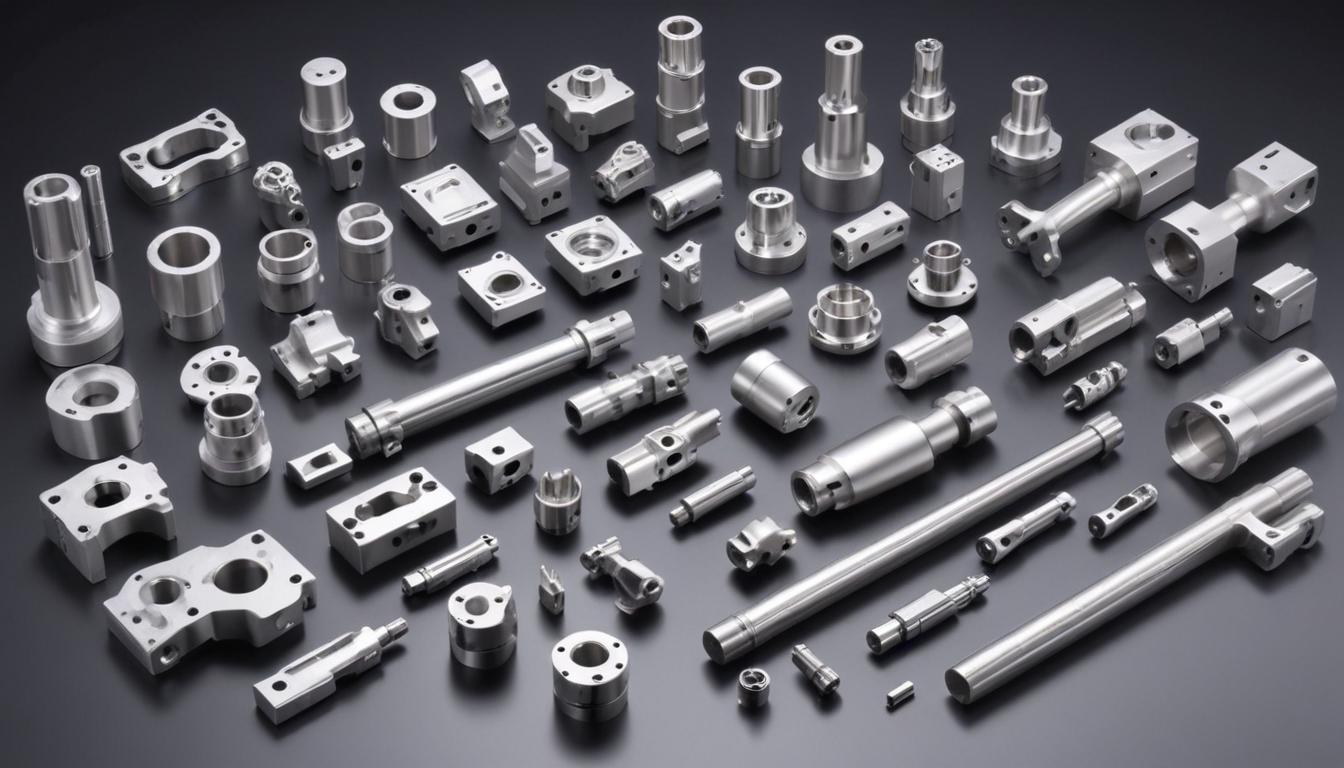
As the manufacturing sector faces growing pressure to adopt environmentally responsible practices, sustainable CNC machining has emerged as a critical focus for industry leaders. The integration of eco-friendly materials and processes is essential in minimizing the environmental impact of machining operations. Manufacturers are increasingly turning to biodegradable and recyclable materials that can reduce the carbon footprint associated with production. Additionally, advancements in material science have led to the development of alternative materials, such as bio-based polymers and composites, which offer similar performance characteristics as traditional materials while being more environmentally friendly.
Another vital aspect of sustainability in CNC machining is the implementation of energy-efficient machines. Modern CNC equipment is designed to consume less energy while delivering high performance. Features such as variable-speed drives, advanced cooling systems, and optimized power management contribute to reduced energy consumption during machining processes. Moreover, many manufacturers are investing in energy-efficient technologies, such as LED lighting and regenerative braking systems, to further enhance their operational efficiency. By prioritizing energy efficiency, manufacturers can significantly lower their energy costs while minimizing their environmental impact.
Waste reduction strategies also play a crucial role in promoting sustainability within CNC manufacturing. Effective waste management practices can help minimize scrap material and improve overall resource utilization. Techniques such as lean manufacturing principles and just-in-time production are being adopted to streamline operations and reduce excess inventory. Additionally, manufacturers are exploring advanced recycling methods for scrap materials, ensuring that as much waste as possible is repurposed or reused. Implementing these waste reduction strategies not only contributes to environmental sustainability but also enhances the bottom line by reducing material costs and improving operational efficiency. By embracing sustainable practices, the CNC machining industry can significantly mitigate its environmental impact while positioning itself for future growth and innovation.
4. Growing Opportunities in the CNC Machining Industry
a. Customization and Prototyping
The demand for custom machined parts has seen a significant rise across various industries, driven by the need for tailored solutions that meet specific customer requirements. As businesses increasingly prioritize customization, CNC machining has become a go-to technology for producing unique components that cater to niche applications. This shift towards individualized manufacturing allows companies to differentiate themselves in the marketplace, fostering innovation and creativity in product design.
Advancements in CNC technology have also facilitated rapid prototyping, enabling manufacturers to bring their ideas to life more quickly than ever before. With the ability to produce complex geometries and intricate designs in a matter of hours or days, CNC machining streamlines the product development process. This capability not only accelerates time-to-market but also allows for more iterations and testing, resulting in higher quality products that align closely with customer expectations. The intersection of customization and rapid prototyping represents a lucrative opportunity for CNC machining businesses to expand their offerings and attract new clients.
b. Skill Development and Workforce Transition
As the CNC machining industry continues to evolve, the demand for skilled labor with expertise in CNC operations and digital technologies is becoming increasingly critical. The integration of advanced technologies such as AI, robotics, and IoT into CNC machining requires a workforce that is well-versed in both traditional machining practices and modern digital tools. This transition presents a unique challenge, as many current operators may not possess the necessary skills to adapt to these new technologies.
To address this skills gap, there are growing opportunities in CNC training and certification programs. Manufacturers are investing in workforce development initiatives to equip their employees with the knowledge and skills needed to thrive in a rapidly changing environment. Collaborations with educational institutions and vocational training centers are becoming more common, providing pathways for individuals to gain the expertise required for careers in CNC machining. By fostering a skilled workforce, the industry can ensure its continued growth and innovation while creating rewarding career opportunities for individuals in the field.
c. Small and Medium Enterprises (SMEs) in CNC Machining
Small and medium enterprises (SMEs) are increasingly finding growth opportunities within the CNC machining industry, particularly in niche markets. These businesses can leverage their agility and flexibility to cater to specific customer needs that larger manufacturers may overlook. By focusing on specialized applications or unique product offerings, SMEs can establish themselves as key players in their respective sectors.
Supportive technologies are also enabling SMEs to enhance their CNC operations. Cloud-based software solutions, for example, allow small manufacturers to access advanced analytics and monitoring tools without the need for significant upfront investment. Additionally, affordable CNC machines and automation technologies have become more accessible, empowering SMEs to improve efficiency and expand their production capabilities. By capitalizing on these opportunities, SMEs can thrive in a competitive landscape, driving innovation and contributing to the overall growth of the CNC machining industry.
d. Expanding Global Market
The global demand for CNC machined parts is steadily increasing, particularly in developing countries that are experiencing rapid industrialization. As these nations invest in manufacturing capabilities and infrastructure, the need for high-quality, precision-engineered components is surging. This trend presents a significant opportunity for CNC machining businesses to expand their operations and tap into new markets.
CNC machining plays a vital role in global supply chains, enabling manufacturers to meet the diverse needs of clients worldwide. As companies strive for efficiency and cost-effectiveness, the ability to source CNC machined parts from reliable suppliers becomes essential. This interconnectedness underscores the importance of CNC machining in facilitating international trade and meeting the growing demand for specialized components. By focusing on global market opportunities, CNC machining businesses can position themselves for sustained growth and contribute to the industry's evolution in an increasingly interconnected world.
5. Challenges and Considerations for CNC Machining Growth
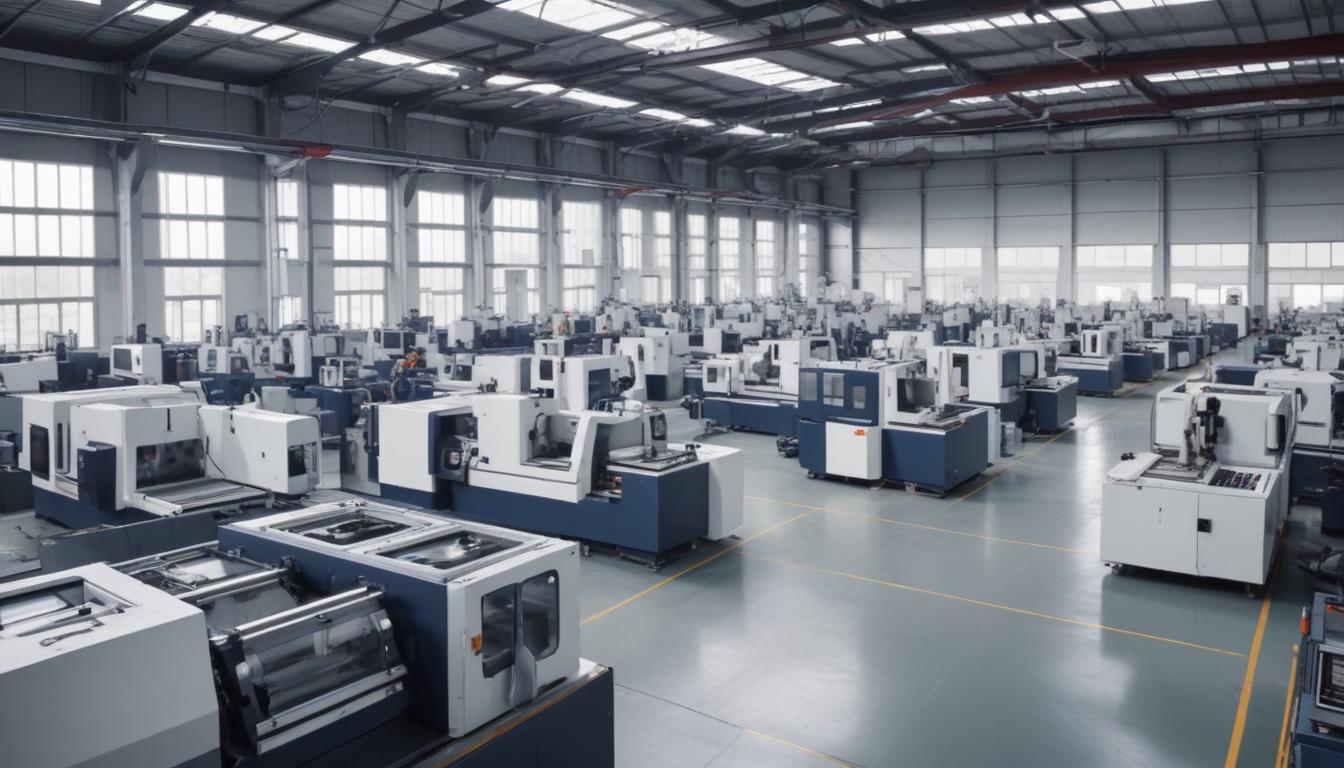
As the CNC machining industry evolves and embraces new technologies, it faces several challenges and considerations that must be addressed to sustain growth and innovation. One of the primary obstacles is the investment costs associated with advanced CNC technology. Upgrading to state-of-the-art CNC machines, incorporating automation, and integrating advanced software solutions can require significant financial outlay. For small and medium enterprises (SMEs), these initial costs can be daunting, potentially limiting their ability to compete in a market increasingly dominated by companies that have made substantial investments in technology. Therefore, it's essential for manufacturers to carefully evaluate their investment strategies, seek financing options, and consider phased upgrades that allow them to enhance their capabilities while managing costs effectively.
Another pressing concern in the CNC machining sector is cybersecurity. As machines become more connected through the Internet of Things (IoT) and other digital technologies, they also become more vulnerable to cyberattacks. Threats such as data breaches, ransomware, and system compromises can disrupt operations and compromise sensitive information. Manufacturers must prioritize cybersecurity measures, including implementing robust firewalls, conducting regular system audits, and training employees on best practices for data protection. As the industry moves towards greater connectivity, establishing a strong cybersecurity framework will be critical to safeguarding operations and maintaining customer trust.
Navigating regulations and standards is another significant consideration for CNC machining companies. Compliance with industry regulations, safety standards, and environmental requirements can be complex and vary by region. As the global market for CNC machined parts expands, manufacturers must stay informed about changing regulations that impact their operations. This includes understanding quality standards such as ISO certification and adhering to environmental policies related to waste management and emissions. Developing a proactive approach to regulatory compliance not only helps companies avoid potential legal issues but also positions them as responsible and trustworthy partners in the marketplace.
By addressing these challenges, CNC machining businesses can create a solid foundation for sustainable growth. Investing in advanced technology, prioritizing cybersecurity, and navigating regulatory landscapes effectively will enable manufacturers to enhance their operational efficiency, maintain competitiveness, and capitalize on the opportunities presented by the evolving industry landscape. As the CNC machining sector continues to advance, embracing these considerations will be essential for ensuring long-term success and innovation.
Conclusion
The future of the CNC machining industry is bright, driven by continuous innovations and emerging opportunities that are reshaping the manufacturing landscape. As advancements in automation, AI, IoT, and materials science propel the industry forward, manufacturers must remain agile and adaptable to capitalize on these changes. Embracing sustainability practices, fostering skill development, and navigating challenges such as investment costs and cybersecurity will be essential for long-term success. By focusing on customization, rapid prototyping, and the expanding global market, CNC machining businesses can position themselves at the forefront of innovation, ensuring they not only meet current demands but also thrive in an increasingly competitive environment. As the industry evolves, those who embrace these opportunities and address the challenges will lead the way in shaping the future of CNC machining.

